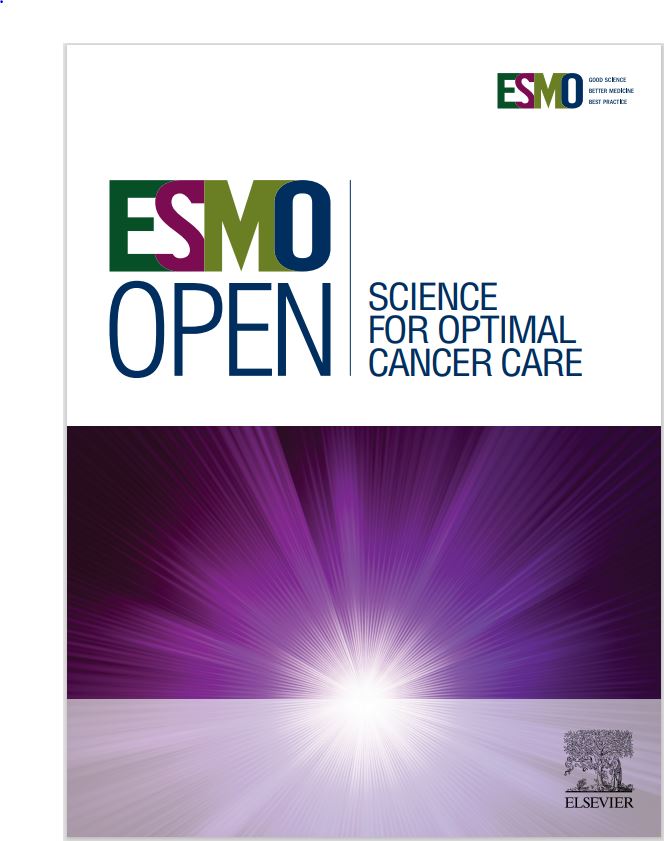癌症患者早期使用检查点抑制剂计划报告的临床意义:一项法国全国性回顾性队列研究
IF 7.1
2区 医学
Q1 ONCOLOGY
引用次数: 0
摘要
背景为了加快新药的上市速度,法国在2021年前实施了一项名为 "临时使用授权(ATU)"的早期准入计划。我们分析了根据ATU提交的免疫检查点抑制剂(ICIs)临床报告,并评估了这些报告与肿瘤学领域批准ICIs的临床相关性。方法我们纳入了2010年1月1日至2020年12月31日期间法国药品安全局(ANSM;法国国家药品与健康产品安全局)授予癌症患者ATU的所有ICIs。我们从制药公司提交的 ATU 报告中收集了患者的临床和药物警戒数据,并将这些数据与相应的关键临床试验 (CT) 数据进行了比较。在 10 份可用的 ATU 报告中,只有 1 份包含了所有必要数据。40.5%的患者提供了临床随访表。由于数据报告方面的差异,我们无法比较 CT 与 ATU 报告之间的严重不良事件。临床医生和制药公司在 ICIs 是否导致 163 例永久性治疗中断的问题上经常存在分歧,科恩偏倚和患病率调整后的κ = 0.52,95% CI 0.33-0.68。尽管在 93 例非进展性肿瘤死亡病例(κ = 0.88,95% CI 0.66-0.97)中几乎完全一致,但仍有 29% 的 ATU 患者死亡原因不明,制药公司报告称与治疗无关。然而,数据损耗阻碍了对真实世界的有效监测。本文章由计算机程序翻译,如有差异,请以英文原文为准。
Clinical relevance of reports on early access programs for checkpoint inhibitors in cancer patients: a French retrospective nationwide cohort study
Background
To accelerate access to new drugs, France operated an early access program known as Temporary Authorizations for Use (ATUs) until 2021. We analyzed clinical reports submitted under ATUs for immune checkpoint inhibitors (ICIs) and assessed their clinical relevance regarding the approval of ICIs in oncology.
Methods
We included all ICIs granted an ATU by the French drug safety agency, Agence nationale de sécurité du médicament et des produits de santé (ANSM; French National Agency for the Safety of Medicines and Health Products), for patients with cancer between 1 January 2010 and 31 December 2020. We collected patients’ clinical and pharmacovigilance data from ATU reports submitted by pharmaceutical companies and compared these data with those from corresponding pivotal clinical trials (CTs).
Results
The ATUs provided early access to 5807 patients with seven ICIs across 11 cancer indications, 1 of which had no corresponding ATU report. Of the 10 available ATU reports, only 1 included all required data. Clinical follow-up forms were available for 40.5% of patients. Differences in data reporting prevented us from comparing serious adverse events between the CTs and ATU reports. Clinicians and pharmaceutical companies often disagreed on whether ICIs caused 163 permanent treatment discontinuations, with Cohen’s bias- and prevalence-adjusted κ = 0.52, 95% CI 0.33-0.68. Although agreement was almost perfect for 93 nonprogressive tumor deaths (κ = 0.88, 95% CI 0.66-0.97), 29% of ATU patient deaths remained unexplained and were reported as unrelated to treatment by the pharmaceutical companies.
Conclusion
French ATUs facilitated early access to new ICIs for many patients with cancer. However, data attrition hindered effective real-world monitoring.
求助全文
通过发布文献求助,成功后即可免费获取论文全文。
去求助
来源期刊

ESMO Open
Medicine-Oncology
CiteScore
11.70
自引率
2.70%
发文量
255
审稿时长
10 weeks
期刊介绍:
ESMO Open is the online-only, open access journal of the European Society for Medical Oncology (ESMO). It is a peer-reviewed publication dedicated to sharing high-quality medical research and educational materials from various fields of oncology. The journal specifically focuses on showcasing innovative clinical and translational cancer research.
ESMO Open aims to publish a wide range of research articles covering all aspects of oncology, including experimental studies, translational research, diagnostic advancements, and therapeutic approaches. The content of the journal includes original research articles, insightful reviews, thought-provoking editorials, and correspondence. Moreover, the journal warmly welcomes the submission of phase I trials and meta-analyses. It also showcases reviews from significant ESMO conferences and meetings, as well as publishes important position statements on behalf of ESMO.
Overall, ESMO Open offers a platform for scientists, clinicians, and researchers in the field of oncology to share their valuable insights and contribute to advancing the understanding and treatment of cancer. The journal serves as a source of up-to-date information and fosters collaboration within the oncology community.
 求助内容:
求助内容: 应助结果提醒方式:
应助结果提醒方式:


